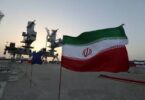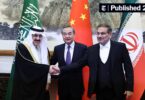The World Bank forecast tells that economic growth rate of Pakistan will remain sluggish at 2.9 percent whereas the International Monetary Fund (IMF) has projected it to be lower at 2.5 percent till 2024 if further structural reforms are not carried out. Although UN Economic and Social Council report predicts economic growth rate to be slightly over 4 percent but says Pakistan’s economic growth rate may even fall behind Nepal and Maldives which sustain growth rate of 6 percent. Other countries of the region like Bangladesh and India will sustain their economic growth rate at 7.3 percent and 8 percent respectively.
The gloomy forecast about country’s economy comes at a time when Finance Minister Asad Omer is attending the spring meeting of the World Bank in Washington and has held meetings with Executive Directors of the IMF to discuss the parameters and conditions of three years bail out package. The lending agency imposed structural reforms that impact feudal gentry and other wealthy classes have never been implemented in the past although sitting governments usually made firm promises with the intension to backtrack on their promises. This time IMF loans programme will be front loaded seeking the implementation of monetary and fiscal reforms prior to the actual disbursement of loans. Monetary reforms like increase in the interest, and flexible exchange rate have been done. On the fiscal side a number of doses of the regressive measures of increasing electricity and gas tariffs have been taken and more are in the pipeline. However, stern action against the defaulters of electricity and gas bills has not been taken. Power sector crises had been caused by the shady power purchase agreements with IPPs during in 1994 and with Chinese companies by the previous PML-N government, which need serious negotiations with private power producers for out of court settlement to bring down electricity tariff. The government like its predecessors is reluctant to go after the tax evaders and non-filers of income tax returns and block the conduit of tax evasion by the industrialists who manage to club bulk of their income from industries and business enterprises with agriculture income thus get exemption from paying full amount of taxes. The crackdown of Regional Tax offices is entirely focused on punitive actions against small traders. The government has not shown the political will to carry out survey for authentic tax profiling to net the non-filers.
Contrary to earlier announcements about putting in place a long term trade policy the government has not delivered on this front to effectively address the yawning trade gap although exports have shown increase of 4 percent and imports are falling. Trade bodies have expressed grave concern over stagnant exports from five major sectors despite rupee depreciation by over 30 percent. They have demanded thorough analysis to find out the reasons behind stagnant exports and called upon the government to extend full support to private sector to enhance production with technology improving, balancing and modernization of industries and products innovations for export markets. State owned industrial enterprises that produce civilian goods incur losses of Rs.1100 billion annually and it is the private sector which can play a leading role in the revival and stabalisations of economy.
The Prime Minister wants to provide 10 million jobs during the current tenure of his government. But the economy can create more jobs when economic growth rate rises to 7 percent and is sustained which depends on substantially improving economic environment. The prices of energy inputs in Pakistan are the highest in the region and its industrial sector is freezed on second generation technology as compared with Bangladesh, India, Vietnam and even Cambodia wherein the industries apply 4th and 5th generation technologies and tariffs of energy inputs is less than half of the ones charged in Pakistan. The economy cannot survive with the application of crude technology and unfavourable economic environment.






